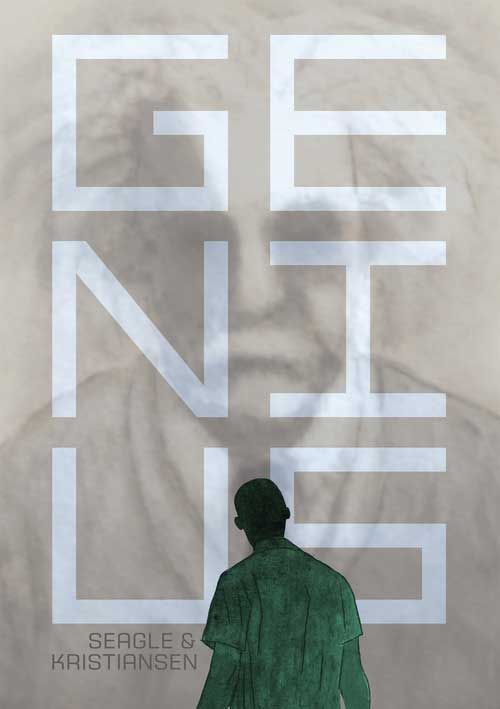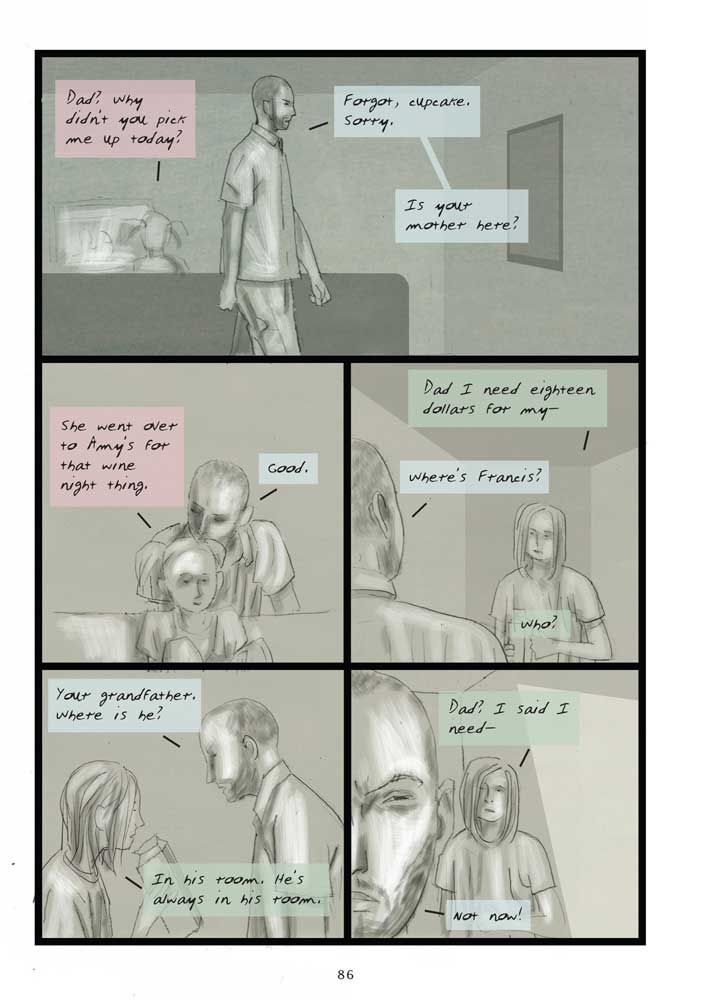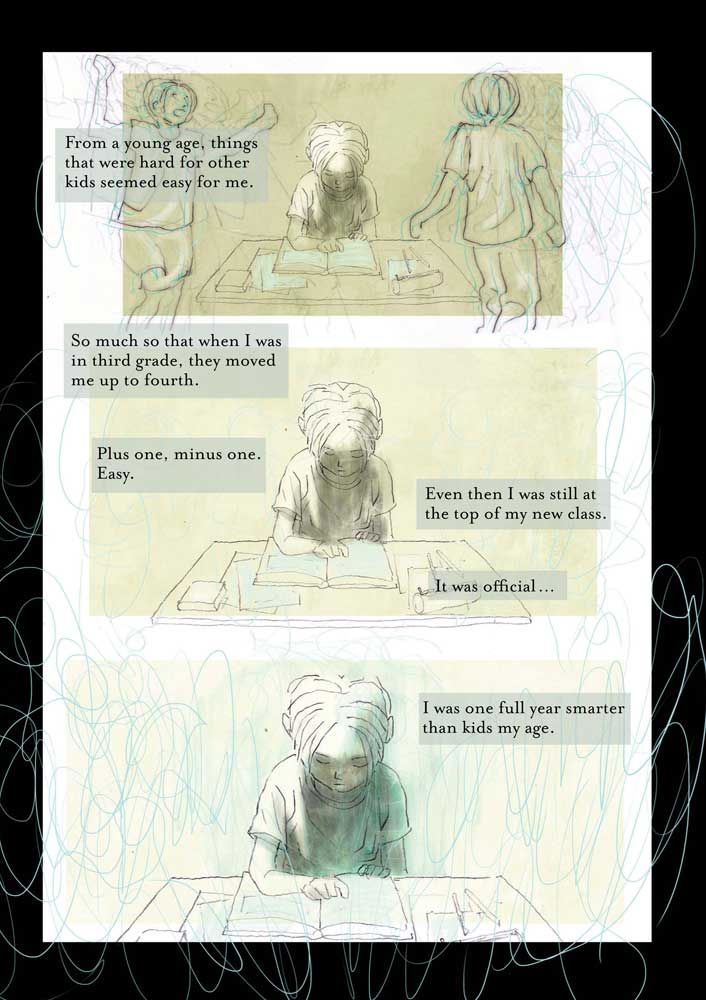If you can't sleep, reading a book might be the closest thing to having a friend stay up with you. At 5am I woke up with back ache and I couldn't fall asleep again, so I picked up Steven Seagle and Teddy Kristiansen's book, "Genius" and slipped into someone else's world for a while. Not being able to sleep and lying in bed, alone with all of the thoughts about why you can't sleep and what it will mean tomorrow are the things that make sleeplessness so incredibly annoying. If you're not alone, being awake late can almost be fun, like when we were little kids and felt like we were getting away with something by staying up late. Finding something good to read as company in the night is a welcome reminder of the world outside of sleepless thoughts, and Seagle and Kirstiansen's "Genius" is pretty good company.
As a creative team, Seagle and Kristiansen have collaborated before, and each time their works have provided interesting journeys into subtly unconventional stories. Their ability to create books which are gently moving has been clearly established, so I suppose that I shouldn't be so thrown by "Genius". However, with an uncompromising title like that, and having known people within the science and think-tank community, I think I was expecting something rather pompous and cerebral. I didn't expect to read such an emotional and personal little slice of human life and it was a very welcome surprise.
Despite the title of "Genius" and the premise of Ted (the main character) as a man trying to discover one more world-changing thing to keep his boss happy and re-establish him as a genius, the core of this story is actually about his emotional journey. We as readers step quickly into his angst-ridden day-to-day life, wondering if his great works of genius are already over, scared that he has nothing left to give. Initially we only see his very narrow self-image which he has wedded entirely to his work, he only sees himself in terms of what he can offer in this one area and cannot perceive anything beyond it. Gradually, his strength of character and considerate nature comes to the fore and his true work of genius is in knowing how and when to entirely change the rules of the game he is being forced to play.
During what is a difficult time for many of us in employment (whether we are geniuses or not), this slavish, hopeless mood is worth examining. For many people the loss of a job means the loss of essential health care, and risking the lives of the people we love the most. By tying our health insurance to our jobs, we run the danger of feeling enslaved by employers - our lives are literally in their hands. It is a horrific reality of life in America and one which we very rarely see examined in literature in this way. While it is not the central focus of "Genius", the book would lose it's fulcrum without it. In a country like Britain, where there is a National Health Service, Ted's anxiety about his job could simply be that, but in America the central issue in this book takes on a terrifying weight and Seagle handles it deftly.
Visually, this is clearly a Kristiansen book, with his characteristically jerky, line work which has always been a little reminiscent of the artist Paul Klee to me. Similarly, the very limited, sepia-toned color palette is indicative of the washed out, faded quality of the journey depicted. It is a brave thing to do, since within the context of a sparse structure like this, every error could be glaring, but there are none and Kristiansen's choice pays off. At times, when the big revelation threatens to alter the world, Kristiansen plays with rich abstracts and deep, raw, bloody colors. In those few instances he almost begins to feel like an abstract expressionist, very much a Rothko feel.
Overall, there is an expressionist quality to every page which imbues the characters with a pained vulnerability. Unlike previous works, Kristiansen almost entirely foregoes any background or structural elements, presenting only the most vital elements of the story; the people and the small items of furniture with which they interact. In this way he effectively conveys Ted's extremely limited and emotionally isolated life. Like many so-called geniuses, Ted's focus is only on the most immediate aspects of his environment and his awareness cannot be spared for such frivolities as decor and architecture. It is an interesting device and imparts a subtle feeling of impending loss and fear to the characters.
Out of all of the choices made on this book though, my personal favorite is the style of lettering. Rather than speech bubbles or boxes, the text overlays the panels like translucent sheets of velum or tape stuck on to it. It makes the story reminiscent of a dossier of secrets, like a pile of dusty, old lost paperwork finally coming to light. While each character's dialogue is given a different color, the colors are subtle as to function on an almost subconscious level, allowing us as readers to simply absorb the information without being forced to acknowledge every aspect of how we came to these conclusions. It is a perfect metaphor for a book which is simply and elegantly beautiful.




